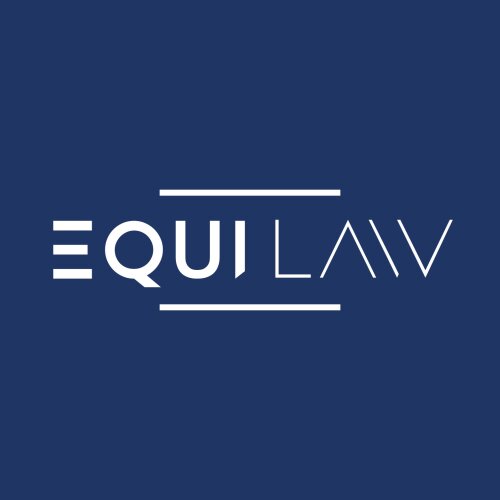Best Bankruptcy & Debt Lawyers in Fiji
Share your needs with us, get contacted by law firms.
Free. Takes 2 min.
Or refine your search by selecting a city:
List of the best lawyers in Fiji
About Bankruptcy & Debt Law in Fiji
Bankruptcy and debt law in Fiji governs how creditors can recover debt from individuals or businesses that are unable to repay their debts. The law also provides a mechanism for debt-stricken individuals or businesses to seek relief and work towards rebuilding their financial status. The legal framework takes into account the rights and responsibilities of both the creditor and the debtor, and balances between ensuring creditors receive due payments and protecting debtors from undue hardship.
Why You May Need a Lawyer
Managing bankruptcy or debt-related issues can be complex due to the legal and financial intricacies involved. A lawyer specializing in this field can provide guidance, explain your legal rights, represent you in court, negotiate with creditors, prepare and process the required legal and financial documents, and formulate a suitable financial recovery plan. You may need legal advice if your creditors are threatening legal action, if you are considering filing for bankruptcy, if you are already bankrupt and need to understand your legal status and responsibilities, or if you are seeking a way to re-arrange, reduce, or eliminate your debts.
Local Laws Overview
According to Fijian laws, bankruptcy proceedings are primarily regulated by the Bankruptcy Act and governed by the High Court of Fiji. Individuals or businesses can voluntarily apply to the court to declare bankruptcy or creditors may file a petition against the debtor. Upon declaration of bankruptcy, the debtor's assets are distributed to the creditors under a court-appointed trustee. Additionally, bankruptcy can be discharged after three years, enabling debtors to make a fresh financial start. It's important to note that bankruptcy involves serious consequences, such as a negative impact on your credit score and limitations on borrowing, which is where legal advice becomes important.
Frequently Asked Questions
1. Can I file for bankruptcy to get rid of all my debts?
Filing for bankruptcy may help eliminate many types of debts, but not all. Certain debts like child support, student loans, and taxes usually cannot be discharged in bankruptcy.
2. How long does bankruptcy last?
In Fiji, bankruptcy typically lasts for three years from the date it was declared.
3. Will I lose everything if I file for bankruptcy?
Not necessarily. Some property is protected under Fiji bankruptcy law, including essential household items, tools of trade, and properties held in trust, among others.
4. Does bankruptcy affect my spouse?
Bankruptcy does not directly affect your spouse unless they are co-signatory to your debts or jointly own property with you.
5. What are the consequences of bankruptcy?
Bankruptcy can have serious consequences including a negative impact on your credit score, difficulty in securing future borrowing, and limitation on buying or selling assets.
6. Can creditors still harass me after filing for bankruptcy?
After you file for bankruptcy, an "automatic stay" is put in place to prevent most creditors from collecting debts.
7. What happens after discharge of bankruptcy?
After discharge of bankruptcy, you are released from most of the debts that were included in your bankruptcy. However, the bankruptcy will still be recorded in your credit report for some years.
8. Who will know about my bankruptcy?
The trustee, your creditors, and the High Court will have a record of your bankruptcy. Bankruptcy is also a public legal proceeding, so it's a matter of public record.
9. Can bankruptcy stop a wage garnishment?
Yes, declaring bankruptcy usually stops most wage garnishments.
10. Can I run a business while being bankrupt?
In Fiji, you can potentially run a business while bankrupt, but with certain legal restrictions and you must inform those you're doing business with that you're bankrupt.
Additional Resources
To further understand the bankruptcy and debt law in Fiji, some useful resources include the legislation of Fiji available online, the Fiji Law Reports, and the Legal Aid Commission. These provide valuable and comprehensive insights into Fijian Bankruptcy Laws.
Next Steps
If you require legal help regarding bankruptcy and debt, the first step is to consult with a professional attorney who specializes in Bankruptcy and Debt Law. The attorney can help you understand your legal position, your options, and the possible consequences. It's also essential to gather all relevant documents pertaining to your income, debts, and assets. Lastly, it is crucial to act promptly in seeking legal advice if you are facing imminent legal action from creditors.
Lawzana helps you find the best lawyers and law firms in Fiji through a curated and pre-screened list of qualified legal professionals. Our platform offers rankings and detailed profiles of attorneys and law firms, allowing you to compare based on practice areas, including Bankruptcy & Debt, experience, and client feedback.
Each profile includes a description of the firm's areas of practice, client reviews, team members and partners, year of establishment, spoken languages, office locations, contact information, social media presence, and any published articles or resources. Most firms on our platform speak English and are experienced in both local and international legal matters.
Get a quote from top-rated law firms in Fiji — quickly, securely, and without unnecessary hassle.
Disclaimer:
The information provided on this page is for general informational purposes only and does not constitute legal advice. While we strive to ensure the accuracy and relevance of the content, legal information may change over time, and interpretations of the law can vary. You should always consult with a qualified legal professional for advice specific to your situation.
We disclaim all liability for actions taken or not taken based on the content of this page. If you believe any information is incorrect or outdated, please contact us, and we will review and update it where appropriate.
Browse bankruptcy & debt law firms by service in Fiji
Fiji Attorneys in related practice areas.
Browse bankruptcy & debt law firms by city in Fiji
Refine your search by selecting a city.












